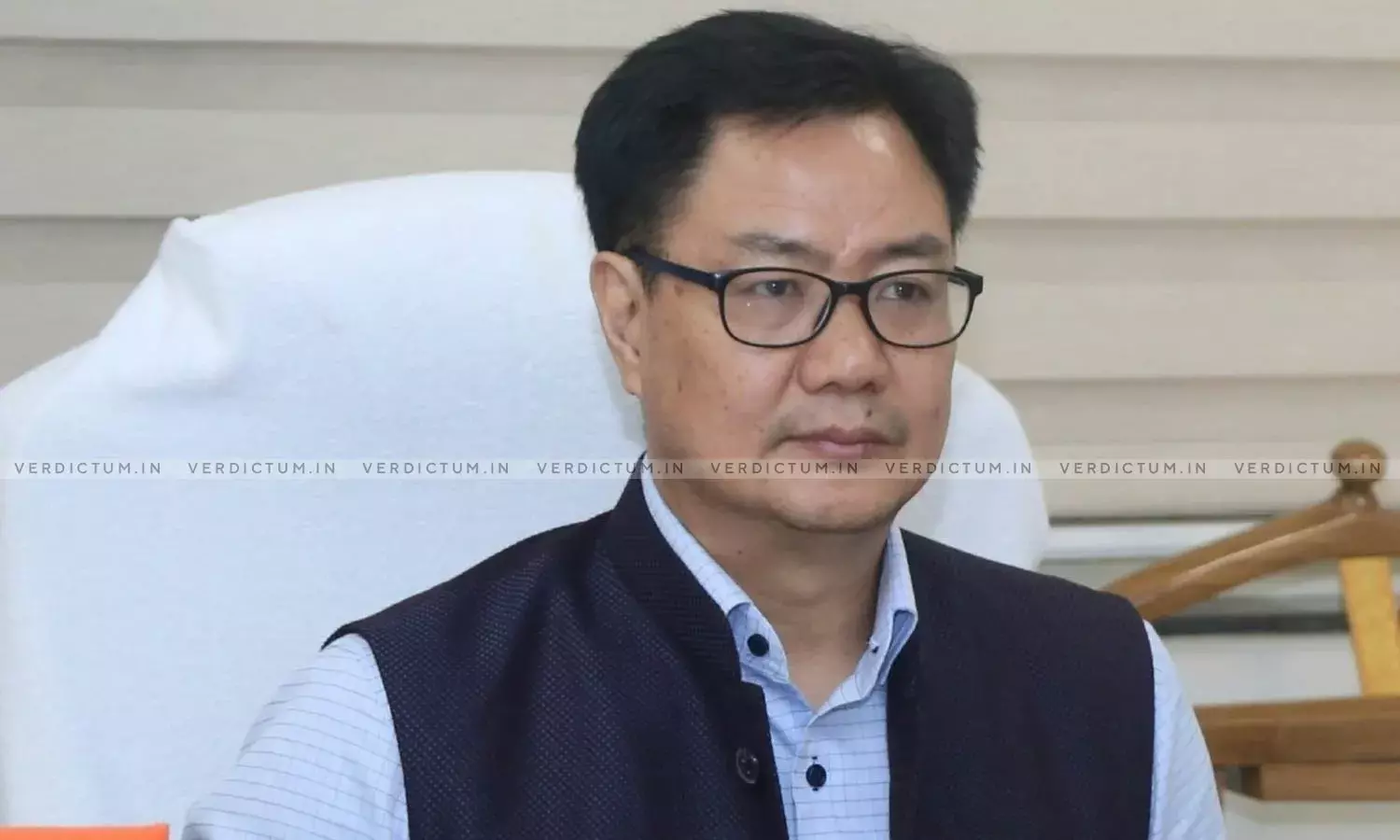Full Court Of SC Did Not Accept Proposals To Permit Use Of Tamil, Gujarati, Bengali And Kannada In Proceedings Of Respective HCs: Law Minister

Union Minister of Law and Justice Kiren Rijiju told the Lok Sabha on Friday that the Centre had received proposals from the Governments of Tamil Nadu, Gujarat, Chhattisgarh, West Bengal and Karnataka to permit the use of Tamil, Gujarati, Hindi, Bengali and Kannada in the proceedings of the Madras High Court, Gujarat High Court, Chhattisgarh High Court, Calcutta High Court and Karnataka High Court respectively.
"The advice of Chief Justice of India was sought on these proposals and it was intimated that the Full Court of the Supreme Court after due deliberations, decided not to accept the proposals", the Minister informed the Parliament.
The reply was given to questions about allowing the use of regional languages in the High Courts of various States.
The Minister also informed the Lok Sabha that based on a fresh request from the Government of Tamil Nadu, the Centre requested the Chief Justice of India to review the earlier decisions in this regard and convey the consent of the Supreme Court of India. The Chief Justice of India conveyed that the Full Court, after extensive deliberations decided not to approve the proposal and reiterated the earlier decisions of the Court.
The reply also said that the use of Hindi in the proceedings of the High Court of Rajasthan was authorized under clause (2) of Article 348 of the Constitution in 1950. "After the Cabinet Committee’s decision dated 21.05.1965 as mentioned above, the use of Hindi was authorized in the High Courts of Uttar Pradesh (1969), Madhya Pradesh (1971) and Bihar (1972) in consultation with the Chief Justice of India", the reply said.
It was also informed that under the aegis of the Ministry of Law & Justice, the Bar Council of India has constituted ‘Bharatiya Bhasha Samiti’ chaired by former Chief Justice of India, Justice S.A. Bobde. The committee is developing a Common Core Vocabulary close to all Indian languages for the purpose of translating legal material into regional languages, the reply said.
Replying to a question about whether the Centre proposes to prepare more virtual courts in the country, it was informed that Virtual Courts is a concept aimed at eliminating the presence of the litigant or lawyer in the court and for adjudication of cases on a virtual platform. The concept has been evolved in order to efficiently utilize court resources and to provide litigants with an effective avenue to settle traffic challans, the Lok Sabha was told.
"Virtual Court can be administered by a Judge over a virtual electronic platform whose jurisdiction may extend to the entire State and function 24X7". There are 21 such courts in 17 States / UTs and over 2.40 crore cases have been handled by 21 virtual courts and in more than 32 lakhs cases online fine of more than Rs. 347 crore has been realised, the Parliament was told.

